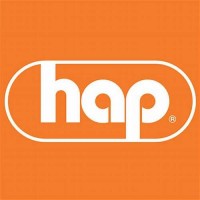
Health Alliance Plan Company Cyber Security Posture
hap.orgWe are a non-profit, Michigan-based company and a subsidiary of the Henry Ford Health System, one of the nation's leading health care systems. We provide health plans for everyone -- individuals and companies of all sizes. Since 1960, we’ve partnered with leading doctors, hospitals, employers and community organizations to enhance the lives of those we touch. We offer six distinct health insurance lines: • Group Insured Commercial • Individual • Medicare • Medicaid • Self-Funded • Network Leasing HAP also provides: • Award-winning wellness programs • Community outreach • Digital health tools • Disease management services • Personalized customer service
HAP Company Details
health-alliance-plan
1008 employees
13113.0
62
Hospitals and Health Care
hap.org
Scan still pending
HEA_1926711
In-progress
Between 800 and 900
This score is AI-generated and less favored by cyber insurers, who prefer the TPRM score.
 HAP Global Score
HAP Global Score.png)

Health Alliance Plan Company Scoring based on AI Models
| Model Name | Date | Description | Current Score Difference | Score |
|---|---|---|---|---|
| AVERAGE-Industry | 03-12-2025 | This score represents the average cybersecurity rating of companies already scanned within the same industry. It provides a benchmark to compare an individual company's security posture against its industry peers. | N/A | Between 800 and 900 |
Health Alliance Plan Company Cyber Security News & History
| Entity | Type | Severity | Impact | Seen | Url ID | Details | View |
|---|---|---|---|---|---|---|---|
| Health Alliance Plan | Breach | 100 | 4 | 03/2017 | HEA15458323 | Link | |
Rankiteo Explanation : Attack with significant impact with customers data leaksDescription: A security breach exposed the private and protected medical data of more than 120,000 Health Alliance Plan customers. The exposed information includes customers' names, addresses, dates of birth, member identification numbers, health care provider names, patient identification numbers and claim information, such as the service codes and payment amounts. The company suggested that Social Security numbers and credit card information were not exposed in the breach. | |||||||
Health Alliance Plan Company Subsidiaries

We are a non-profit, Michigan-based company and a subsidiary of the Henry Ford Health System, one of the nation's leading health care systems. We provide health plans for everyone -- individuals and companies of all sizes. Since 1960, we’ve partnered with leading doctors, hospitals, employers and community organizations to enhance the lives of those we touch. We offer six distinct health insurance lines: • Group Insured Commercial • Individual • Medicare • Medicaid • Self-Funded • Network Leasing HAP also provides: • Award-winning wellness programs • Community outreach • Digital health tools • Disease management services • Personalized customer service
Access Data Using Our API

Get company history
.png)
HAP Cyber Security News
Facilitating interoperability hinges on a security mindset, says HIMSS25 panel
Galvin moderated a conversation focused on understanding privacy standards and establishing a strong cybersecurity and privacy culture to protect data.
CyberCatch Launches AI-Enabled Cybersecurity Solution for U.S. Healthcare Sector
The new AI-enabled HICP Compliance Manager solution aims to help healthcare providers comply with Health Industry Cybersecurity Practices and ...
Healthcare cybersecurity set for AI boom in 2025
Nine in 10 healthcare organizations are planning to adopt AI tools into their cybersecurity strategy by the end of the year.
Topic: Deterrence and defence
NATO is a defensive alliance whose members are committed to safeguarding the freedom and security of all Allies, against all threats, ...
Cyberattack on Sunflower Medical Group Affects 222,000 Patients
The Rhysida ransomware group has claimed responsibility for the attack and has added Sunflower Medical Group to its data leak site. According to ...
Q&A: Christopher Stanley, M.D., M.B.A., of Henry Ford Subsidiary Populance
In 2024, Detroit-based Henry Ford Health launched a nonprofit subsidiary dedicated to advancing population health.
The Transatlantic Alliance in the Age of Trump: The Coming Collisions
From NATO to Ukraine, climate to trade, tech regulations to China, the United States and Europe will likely clash, repeatedly and continuously.
Health security and emergency preparedness: building a safe and secure WHO European Region
Good health security, which is coordinated across sectors, means that health systems have the resilience to handle crises and grow stronger, ...
Rhysida pwns two US healthcare orgs, extracts over 300K patients' data
Break-ins to systems hosting the data of two US healthcare organizations led to thieves making off with the personal and medical data of ...

HAP Similar Companies
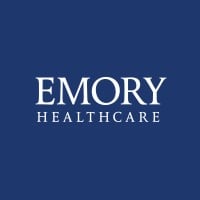
Emory Healthcare
Emory Healthcare is the most comprehensive health care system in Georgia. We offer 11 hospitals, the Emory Clinic, more than 250 provider locations, and more than 2,800 physicians specializing in 70 different medical subspecialties. Meaning we can provide treatments and services that may not be avai

Lifespan
Formed in 1994, Brown University Health (Formerly Lifespan) is a not-for-profit health system based in Providence, RI comprising three teaching hospitals of The Warren Alpert Medical School of Brown University: Rhode Island Hospital and its Hasbro Children's; The Miriam Hospital; and Bradley Hospita
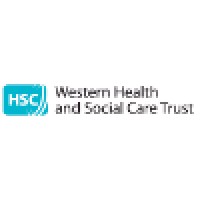
Western Health and Social Care Trust
The Western Health and Social Care Trust delivers a comprehensive range of services to a population of over 298,200 people across the super council areas of Strabane and Derry City, Fermanagh and Omagh District and a portion of the Causeway Coast and Glens Borough Council area. We are guided by our
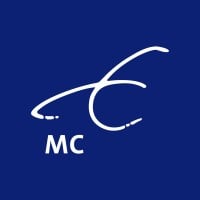
Erasmus MC
We are Erasmus MC. Our roots lie in Rotterdam, a city and port of international standing. We are the most innovative university medical center in the Netherlands and one of the world’s leading centers of scientific research. We are committed to achieving a healthy population and pursuing excellence
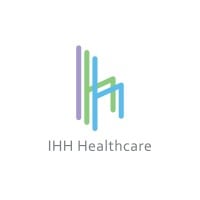
IHH HEALTHCARE MALAYSIA
IHH Healthcare Malaysia is one of the largest private healthcare providers in Malaysia, with approximately 3,000 beds. Our healthcare network comprises 11 Pantai Hospitals, four Gleneagles Hospitals, Prince Court Medical Centre and Timberland Medical Centre, and is complemented by ancillary service
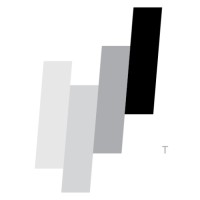
Genesis
As a premier care provider since 1985, Genesis HealthCare is a holding company with subsidiaries that, on a combined basis, provide services to skilled nursing facilities and senior living communities. Genesis also specializes in contract rehabilitation therapy, respiratory therapy, physician servic

Frequently Asked Questions (FAQ) on Cybersecurity Incidents
HAP CyberSecurity History Information
Total Incidents: According to Rankiteo, HAP has faced 1 incidents in the past.
Incident Types: The types of cybersecurity incidents that have occurred include ['Breach'].
Total Financial Loss: The total financial loss from these incidents is estimated to be {total_financial_loss}.
Cybersecurity Posture: The company's overall cybersecurity posture is described as We are a non-profit, Michigan-based company and a subsidiary of the Henry Ford Health System, one of the nation's leading health care systems. We provide health plans for everyone -- individuals and companies of all sizes. Since 1960, we’ve partnered with leading doctors, hospitals, employers and community organizations to enhance the lives of those we touch. We offer six distinct health insurance lines: • Group Insured Commercial • Individual • Medicare • Medicaid • Self-Funded • Network Leasing HAP also provides: • Award-winning wellness programs • Community outreach • Digital health tools • Disease management services • Personalized customer service.
Detection and Response: The company detects and responds to cybersecurity incidents through {description_of_detection_and_response_process}.
Incident Details
Incident 1: Ransomware Attack
Title: {Incident_Title}
Description: {Brief_description_of_the_incident}
Date Detected: {Detection_Date}
Date Publicly Disclosed: {Disclosure_Date}
Date Resolved: {Resolution_Date}
Type: {Type_of_Attack}
Attack Vector: {Attack_Vector}
Vulnerability Exploited: {Vulnerability}
Threat Actor: {Threat_Actor}
Motivation: {Motivation}
Incident 2: Data Breach
Title: {Incident_Title}
Description: {Brief_description_of_the_incident}
Date Detected: {Detection_Date}
Date Publicly Disclosed: {Disclosure_Date}
Date Resolved: {Resolution_Date}
Type: {Type_of_Attack}
Attack Vector: {Attack_Vector}
Vulnerability Exploited: {Vulnerability}
Threat Actor: {Threat_Actor}
Motivation: {Motivation}
Common Attack Types: As of now, the company has not encountered any reported incidents involving common cyberattacks.
Identification of Attack Vectors: The company identifies the attack vectors used in incidents through {description_of_identification_process}.
Impact of the Incidents
Incident 1: Ransomware Attack
Financial Loss: {Financial_Loss}
Data Compromised: {Data_Compromised}
Systems Affected: {Systems_Affected}
Downtime: {Downtime}
Operational Impact: {Operational_Impact}
Conversion Rate Impact: {Conversion_Rate_Impact}
Revenue Loss: {Revenue_Loss}
Customer Complaints: {Customer_Complaints}
Brand Reputation Impact: {Brand_Reputation_Impact}
Legal Liabilities: {Legal_Liabilities}
Identity Theft Risk: {Identity_Theft_Risk}
Payment Information Risk: {Payment_Information_Risk}
Incident 2: Data Breach
Financial Loss: {Financial_Loss}
Data Compromised: {Data_Compromised}
Systems Affected: {Systems_Affected}
Downtime: {Downtime}
Operational Impact: {Operational_Impact}
Conversion Rate Impact: {Conversion_Rate_Impact}
Revenue Loss: {Revenue_Loss}
Customer Complaints: {Customer_Complaints}
Brand Reputation Impact: {Brand_Reputation_Impact}
Legal Liabilities: {Legal_Liabilities}
Identity Theft Risk: {Identity_Theft_Risk}
Payment Information Risk: {Payment_Information_Risk}
Average Financial Loss: The average financial loss per incident is {average_financial_loss}.
Commonly Compromised Data Types: The types of data most commonly compromised in incidents are {list_of_commonly_compromised_data_types}.
Incident 1: Ransomware Attack
Entity Name: {Entity_Name}
Entity Type: {Entity_Type}
Industry: {Industry}
Location: {Location}
Size: {Size}
Customers Affected: {Customers_Affected}
Incident 2: Data Breach
Entity Name: {Entity_Name}
Entity Type: {Entity_Type}
Industry: {Industry}
Location: {Location}
Size: {Size}
Customers Affected: {Customers_Affected}
Response to the Incidents
Incident 1: Ransomware Attack
Incident Response Plan Activated: {Yes/No}
Third Party Assistance: {Yes/No}
Law Enforcement Notified: {Yes/No}
Containment Measures: {Containment_Measures}
Remediation Measures: {Remediation_Measures}
Recovery Measures: {Recovery_Measures}
Communication Strategy: {Communication_Strategy}
Adaptive Behavioral WAF: {Adaptive_Behavioral_WAF}
On-Demand Scrubbing Services: {On_Demand_Scrubbing_Services}
Network Segmentation: {Network_Segmentation}
Enhanced Monitoring: {Enhanced_Monitoring}
Incident 2: Data Breach
Incident Response Plan Activated: {Yes/No}
Third Party Assistance: {Yes/No}
Law Enforcement Notified: {Yes/No}
Containment Measures: {Containment_Measures}
Remediation Measures: {Remediation_Measures}
Recovery Measures: {Recovery_Measures}
Communication Strategy: {Communication_Strategy}
Adaptive Behavioral WAF: {Adaptive_Behavioral_WAF}
On-Demand Scrubbing Services: {On_Demand_Scrubbing_Services}
Network Segmentation: {Network_Segmentation}
Enhanced Monitoring: {Enhanced_Monitoring}
Incident Response Plan: The company's incident response plan is described as {description_of_incident_response_plan}.
Third-Party Assistance: The company involves third-party assistance in incident response through {description_of_third_party_involvement}.
Data Breach Information
Incident 2: Data Breach
Type of Data Compromised: {Type_of_Data}
Number of Records Exposed: {Number_of_Records}
Sensitivity of Data: {Sensitivity_of_Data}
Data Exfiltration: {Yes/No}
Data Encryption: {Yes/No}
File Types Exposed: {File_Types}
Personally Identifiable Information: {Yes/No}
Prevention of Data Exfiltration: The company takes the following measures to prevent data exfiltration: {description_of_prevention_measures}.
Handling of PII Incidents: The company handles incidents involving personally identifiable information (PII) through {description_of_handling_process}.
Ransomware Information
Incident 1: Ransomware Attack
Ransom Demanded: {Ransom_Amount}
Ransom Paid: {Ransom_Paid}
Ransomware Strain: {Ransomware_Strain}
Data Encryption: {Yes/No}
Data Exfiltration: {Yes/No}
Ransom Payment Policy: The company's policy on paying ransoms in ransomware incidents is described as {description_of_ransom_payment_policy}.
Data Recovery from Ransomware: The company recovers data encrypted by ransomware through {description_of_data_recovery_process}.
Regulatory Compliance
Incident 1: Ransomware Attack
Regulations Violated: {Regulations_Violated}
Fines Imposed: {Fines_Imposed}
Legal Actions: {Legal_Actions}
Regulatory Notifications: {Regulatory_Notifications}
Incident 2: Data Breach
Regulations Violated: {Regulations_Violated}
Fines Imposed: {Fines_Imposed}
Legal Actions: {Legal_Actions}
Regulatory Notifications: {Regulatory_Notifications}
Regulatory Frameworks: The company complies with the following regulatory frameworks regarding cybersecurity: {list_of_regulatory_frameworks}.
Ensuring Regulatory Compliance: The company ensures compliance with regulatory requirements through {description_of_compliance_measures}.
Lessons Learned and Recommendations
Incident 1: Ransomware Attack
Lessons Learned: {Lessons_Learned}
Incident 2: Data Breach
Lessons Learned: {Lessons_Learned}
Incident 1: Ransomware Attack
Recommendations: {Recommendations}
Incident 2: Data Breach
Recommendations: {Recommendations}
Key Lessons Learned: The key lessons learned from past incidents are {list_of_key_lessons_learned}.
Implemented Recommendations: The company has implemented the following recommendations to improve cybersecurity: {list_of_implemented_recommendations}.
References
Additional Resources: Stakeholders can find additional resources on cybersecurity best practices at {list_of_additional_resources}.
Investigation Status
Incident 1: Ransomware Attack
Investigation Status: {Investigation_Status}
Incident 2: Data Breach
Investigation Status: {Investigation_Status}
Communication of Investigation Status: The company communicates the status of incident investigations to stakeholders through {description_of_communication_process}.
Stakeholder and Customer Advisories
Incident 1: Ransomware Attack
Stakeholder Advisories: {Stakeholder_Advisories}
Customer Advisories: {Customer_Advisories}
Incident 2: Data Breach
Stakeholder Advisories: {Stakeholder_Advisories}
Customer Advisories: {Customer_Advisories}
Advisories Provided: The company provides the following advisories to stakeholders and customers following an incident: {description_of_advisories_provided}.
Initial Access Broker
Incident 1: Ransomware Attack
Entry Point: {Entry_Point}
Reconnaissance Period: {Reconnaissance_Period}
Backdoors Established: {Backdoors_Established}
High Value Targets: {High_Value_Targets}
Data Sold on Dark Web: {Yes/No}
Incident 2: Data Breach
Entry Point: {Entry_Point}
Reconnaissance Period: {Reconnaissance_Period}
Backdoors Established: {Backdoors_Established}
High Value Targets: {High_Value_Targets}
Data Sold on Dark Web: {Yes/No}
Monitoring and Mitigation of Initial Access Brokers: The company monitors and mitigates the activities of initial access brokers through {description_of_monitoring_and_mitigation_measures}.
Post-Incident Analysis
Incident 1: Ransomware Attack
Root Causes: {Root_Causes}
Corrective Actions: {Corrective_Actions}
Incident 2: Data Breach
Root Causes: {Root_Causes}
Corrective Actions: {Corrective_Actions}
Post-Incident Analysis Process: The company's process for conducting post-incident analysis is described as {description_of_post_incident_analysis_process}.
Corrective Actions Taken: The company has taken the following corrective actions based on post-incident analysis: {list_of_corrective_actions_taken}.
Additional Questions
General Information
Ransom Payment History: The company has {paid/not_paid} ransoms in the past.
Last Ransom Demanded: The amount of the last ransom demanded was {last_ransom_amount}.
Last Attacking Group: The attacking group in the last incident was {last_attacking_group}.
Incident Details
Most Recent Incident Detected: The most recent incident detected was on {most_recent_incident_detected_date}.
Most Recent Incident Publicly Disclosed: The most recent incident publicly disclosed was on {most_recent_incident_publicly_disclosed_date}.
Most Recent Incident Resolved: The most recent incident resolved was on {most_recent_incident_resolved_date}.
Impact of the Incidents
Highest Financial Loss: The highest financial loss from an incident was {highest_financial_loss}.
Most Significant Data Compromised: The most significant data compromised in an incident was {most_significant_data_compromised}.
Most Significant System Affected: The most significant system affected in an incident was {most_significant_system_affected}.
Response to the Incidents
Third-Party Assistance in Most Recent Incident: The third-party assistance involved in the most recent incident was {third_party_assistance_in_most_recent_incident}.
Containment Measures in Most Recent Incident: The containment measures taken in the most recent incident were {containment_measures_in_most_recent_incident}.
Data Breach Information
Most Sensitive Data Compromised: The most sensitive data compromised in a breach was {most_sensitive_data_compromised}.
Number of Records Exposed: The number of records exposed in the most significant breach was {number_of_records_exposed}.
Ransomware Information
Highest Ransom Demanded: The highest ransom demanded in a ransomware incident was {highest_ransom_demanded}.
Highest Ransom Paid: The highest ransom paid in a ransomware incident was {highest_ransom_paid}.
Regulatory Compliance
Highest Fine Imposed: The highest fine imposed for a regulatory violation was {highest_fine_imposed}.
Most Significant Legal Action: The most significant legal action taken for a regulatory violation was {most_significant_legal_action}.
Lessons Learned and Recommendations
Most Significant Lesson Learned: The most significant lesson learned from past incidents was {most_significant_lesson_learned}.
Most Significant Recommendation Implemented: The most significant recommendation implemented to improve cybersecurity was {most_significant_recommendation_implemented}.
References
Most Recent Source: The most recent source of information about an incident is {most_recent_source}.
Most Recent URL for Additional Resources: The most recent URL for additional resources on cybersecurity best practices is {most_recent_url}.
Investigation Status
Current Status of Most Recent Investigation: The current status of the most recent investigation is {current_status_of_most_recent_investigation}.
Stakeholder and Customer Advisories
Most Recent Stakeholder Advisory: The most recent stakeholder advisory issued was {most_recent_stakeholder_advisory}.
Most Recent Customer Advisory: The most recent customer advisory issued was {most_recent_customer_advisory}.
Initial Access Broker
Most Recent Entry Point: The most recent entry point used by an initial access broker was {most_recent_entry_point}.
Most Recent Reconnaissance Period: The most recent reconnaissance period for an incident was {most_recent_reconnaissance_period}.
Post-Incident Analysis
Most Significant Root Cause: The most significant root cause identified in post-incident analysis was {most_significant_root_cause}.
Most Significant Corrective Action: The most significant corrective action taken based on post-incident analysis was {most_significant_corrective_action}.
What Do We Measure?
















Every week, Rankiteo analyzes billions of signals to give organizations a sharper, faster view of emerging risks. With deeper, more actionable intelligence at their fingertips, security teams can outpace threat actors, respond instantly to Zero-Day attacks, and dramatically shrink their risk exposure window.
These are some of the factors we use to calculate the overall score:
Identify exposed access points, detect misconfigured SSL certificates, and uncover vulnerabilities across the network infrastructure.
Gain visibility into the software components used within an organization to detect vulnerabilities, manage risk, and ensure supply chain security.
Monitor and manage all IT assets and their configurations to ensure accurate, real-time visibility across the company's technology environment.
Leverage real-time insights on active threats, malware campaigns, and emerging vulnerabilities to proactively defend against evolving cyberattacks.




